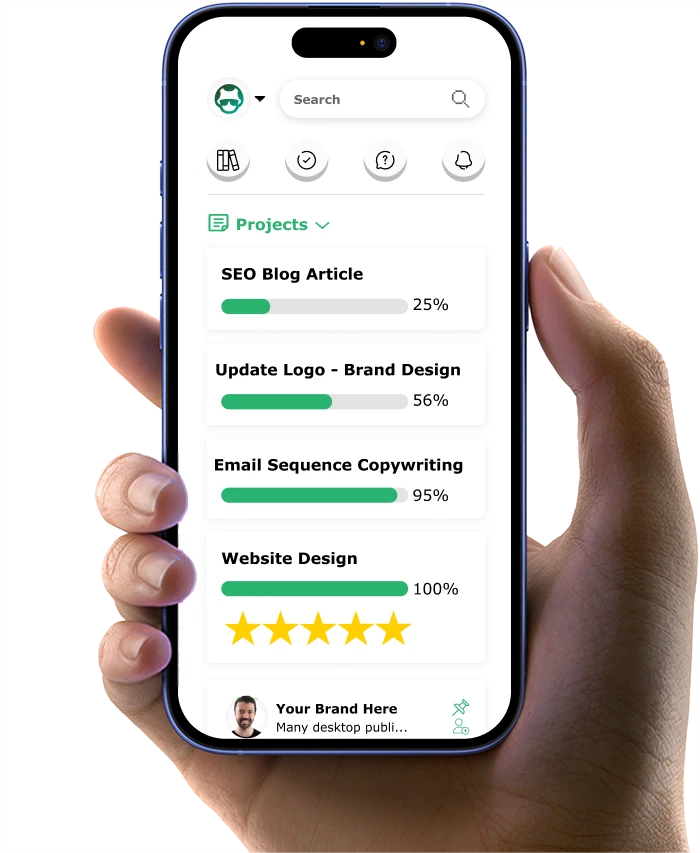The Retargeting Revolution: Making Ads That Convert

You know that your ideal customers visit your site, go through your pages, and...
Somehow, poof! They vanish.
“Well, not everyone buys,” you might be thinking. True. But there might be A LOT more people who were closer to making that purchase than you realize. All they need is someone to reach out to them again.
And we know a strategy that could help.
Think about it. Maybe your conversion rates are at 10%, 20%, 30%. Imagine increasing it even more. Who knows? You might be able to convert 50% of your traffic!
Can you picture out what that means for your bottom line?
We’re talking about one of the long-standing digital advertising trends that are here to stay: retargeting ads.
In a rush? Want to download this article as a PDF so you can easily take action on it later? Click here to download this article as a PDF guide.
What Are Retargeting Ads?
Have you ever wondered how you can keep potential customers from slipping through your fingers? Retargeting (or remarketing) is a marketing strategy where you serve personalized ads to users who’ve already interacted with your website or product but haven’t made a purchase yet.
Back in 2009, Google started playing around with this technique, and they called it “remarketing.” During the experiment, it was all about customized messages that included offers and discounts. Not long after, they added this service as a feature they offer on their Google Ads network.
The magic of retargeting ads is that they remind your potential customers about your brand and encourage them to come back and complete their purchase. Pretty cool, right?
Why You Need Retargeting Ads in Your Marketing Arsenal
Now, you might be thinking, “Why bother with retargeting campaigns when there are other digital advertising trends to consider?” Let me tell you, they’re more important than you might think.
Reengaging Lost Customers
First, among the digital advertising trends, retargeting ads help you reengage those lost customers who showed interest in your products or services but didn’t seal the deal. By reaching out to them with targeted ads, you pique their interest again and increase the likelihood of converting them into actual buyers.
Remember, it’s easier (and cheaper) to reengage someone who’s already familiar with your brand than to start from scratch with a completely new audience. The cost of getting a new customer varies depending on the study you look at and the industry you’re in.
But one thing’s for sure—it’s usually way more expensive (like, five to 25 times more) than keeping the customers you already have. Crazy, right?
Increasing Brand Exposure and Awareness
Let’s face it. In today’s fast-paced digital world, people are bombarded with ads left and right.
You know what else is wild? In 2022, there were a whopping 5 million business applications filed, according to the U.S. Business Formation Statistics (BFS). And that’s just for that year!
By using retargeting campaigns, you get a better chance of your brand staying top of mind for potential customers. And who doesn’t want to be the first choice in a sea of competitors?
Boosting Conversions and Sales
When you reach out to an audience that’s already shown interest, you’re dealing with warmer leads who are more likely to convert. In fact, people who visited your website and are retargeted with ads are 70% more likely to convert.
Plus, with the right incentives, you can sweeten the deal and give them that extra nudge they need to hit the “buy” button. Here are a few ideas:
- Discounts
- Free Shipping
- Limited-Time Offers
- Exclusive Deals
Personalized Marketing Approach
We all crave that personal touch, even when it comes to marketing. Tailor the ads based on visitors’ browsing history or previous interactions with your brand so you can create a marketing experience that feels less intrusive and more like a helpful reminder.
In the end, a personalized approach can lead to happier customers and better conversion rates. According to research, 69% of folks out there actually like personalization, as long as it’s based on info they’ve willingly shared with a business.
Gathering Data for Retargeting Campaigns
Now that we’ve established why retargeting campaigns are the (closest thing to a) magic-bullet solution, it’s time to dive into the nitty-gritty of gathering data.
Types of Data Needed
1. Browsing Behavior
First things first, you need to know how users are interacting with your website. Identify which products or pages they’re most interested in. This info is crucial for creating relevant ads that cater to their interests and needs.
2. Purchase History
Understanding your customers’ past purchases can help you craft targeted ads that promote related products or upsells. Plus, knowing what they’ve already bought can help you avoid showing them ads for items they’ve already snagged.
3. Demographics
These factors play a huge role in crafting the perfect retargeting ad. By tailoring your ads to the demographic profile of your visitors, you can make your marketing feel more personal and appealing. Here are some data you should classify your visitors according to:
- Age
- Gender
- Geographic Location
- Income Level
- Ethnicity
- Interests and Hobbies
- Online Browsing Behavior
- Device Type (e.g., mobile, desktop, tablet)
Collecting data
1. Tracking Pixels and Cookies
When it comes to collecting data for retargeting, tracking pixels and cookies are your best friends. These tiny pieces of code help you monitor user behavior on your website and track which pages they visit. With these, you can gather the information needed to create better campaigns.
2. CRM Systems
Customer relationship management (CRM) systems are a gold mine of data. They store valuable information about your customers, such as contact details, purchase history, and even interactions with your customer support. Refine your retargeting campaigns accordingly to better serve your customers’ needs.
3. Email Marketing Lists
Your email marketing lists also provide valuable data for retargeting campaigns. Analyze the actions of subscribers to gain insights into their preferences and tailor your retargeting ads. These are some of the most important ones you can track:
- Opens: Track the open rate to see how many subscribers are opening your emails, which can indicate their interest in your content.
- Click-Throughs: Monitor the click-through rate to understand how many subscribers are clicking on the links within your emails, showing their engagement with your calls to action.
- Conversions: Track conversions resulting from email marketing campaigns, such as completed purchases, sign-ups, or downloads.
- Bounces: Keep an eye on the bounce rate to identify potential issues with your email list, like invalid email addresses or full inboxes.
- Unsubscribes: Track the number of subscribers who opt out of your emails, which can help you understand how your content is resonating with your audience.
4. Surveys and Customer Feedback
Don’t underestimate the power of customer feedback! Surveys and feedback forms can provide you with direct insights into your customers’ preferences, pain points, and desires. Keep in mind, a happy customer is a loyal customer.
Creating Effective Retargeting Campaigns
Let’s explore how to segment and target your audience, craft compelling ad creatives, and test and optimize your campaigns for maximum impact. Ready to turn those potential customers into actual buyers?
Segmentation and Targeting
1. Identifying Audience Segments
Not all customers are created equal, and that’s why segmentation is key. Break down your audience into smaller groups based on factors like browsing behavior, purchase history, or demographics.
2. Tailoring Ads for Each Segment
It’s time to get creative. If they feel the ads were made just for them, you increase the chances of reengaging and converting your potential customers.
Ad Creatives and Messaging
1. Eye-Catching Design
Let’s be honest: No one wants to look at boring ads. Use appealing images, colors, and typography that reflect your brand’s personality.
2. Strong Call to Action
An effective retargeting ad needs a strong call to action (CTA) that encourages users to take the next step. Make your CTA clear, concise, and compelling—think “Shop Now,” “Claim Your Discount,” or “Get Started Today.
3. Personalization
Show visitors products they’ve viewed, offer personalized recommendations, or address their specific pain points to make your ads irresistible.
C. Testing and Optimizing
1. A/B Testing
Test different headlines, images, or CTAs to find the winning combination that resonates with your audience.
2. Frequency Capping
No one likes being bombarded with ads, so it’s essential to strike the right balance with frequency capping. This means limiting the number of times your ads are shown to the same user in a given period.
3. Ad Rotation and Refreshing
Keep things fresh by rotating and updating your retargeting ads regularly. Showing the same ads over and over can cause ad fatigue and decrease their effectiveness.
Best Platforms and Tools for Retargeting Campaigns
These are some of the best platforms and tools for retargeting campaigns. Whether you’re just starting out or looking to level up your digital advertising trends game, there’s something here for everyone. Go ahead, give them a whirl, and watch those conversions roll in!
1. Google Ads
Google Ads is pretty much the go-to spot for online advertising. With their remarketing options, you can get back in touch with people who’ve checked out your site by doing the following:
- Showing them tailored ads while they’re browsing other websites
- Searching on Google
- Even watching YouTube videos
Not too shabby!
2. Facebook Ads
We all spend a crazy amount of time on Facebook. (Admit it!) That’s why their ad platform is perfect for retargeting. With Facebook remarketing ads, you can accomplish so much, including:
- Reach users who’ve interacted with your website or Facebook page
- Show them personalized ads as they scroll through their feed or hop over to other Meta-owned platforms like Instagram
3. AdRoll
Think of AdRoll as the multitasker of retargeting. This platform lets you run retargeting ads on websites and social media, but it also packs in extra tools, such as for:
- Creating Ads
- Segmenting Your Audience
- Automating Your Campaigns
If you want an all-in-one solution, AdRoll might just be your new BFF.
Perfect Audience
If you’re all about reaching your audience on different platforms, then Perfect Audience is worth a look. These folks let you retarget users across three important areas:
- The Web
- Social Media
- Mobile Apps
Plus, they’ve got some nifty features like dynamic ads, which automatically show the most relevant products to each user based on their browsing history. Talk about personalized!
4. ReTargeter
Last but not least, let’s chat about ReTargeter. This platform is all about making retargeting a breeze for businesses of all sizes. It offers a range of options for reconnecting with your email subscribers, including:
- Site Retargeting
- Search Retargeting
- CRM Retargeting
With their easy-to-use dashboard and solid support, you’ll be up and running with your retargeting campaigns in no time.
When Retargeting Might Be a Waste of Time
Retargeting can be super effective but only if you’re doing it right. By avoiding these pitfalls, you’ll be well on your way to winning back lost customers and boosting your conversions.
1. Lack of Proper Data Collection
Alright, let’s be real. Sometimes, retargeting might not be worth your time, especially if you’re not collecting data the right way. Without the right info about your audience, you’re pretty much shooting in the dark.
2. Insufficient Budget
It’s important to strike a balance between acquiring new customers and winning back those who’ve shown interest in your brand. So if you can’t afford to do both, it’s best to weigh how much attention you should give to this or focus on other marketing strategies.
3. Generic or Unappealing Ad Creatives
Retargeting is all about grabbing attention and standing out from the crowd. If your ad creatives are as exciting as watching paint dry, you’re probably wasting your time. Make sure you’re investing in eye-catching designs and personalized messaging to make your retargeting efforts worthwhile.
4. Poor Targeting and Segmentation
One size doesn’t fit all in the world of retargeting. Take the time to analyze your data, identify different audience segments, and create targeted ads for each group. Otherwise, your retargeting efforts might be going down the drain.
Conclusion
Download “The Retargeting Revolution: Making Ads That Convert” so you won’t forget to take action on it later. Click here to download it now.
Retargeting? You Mean Reengaging!
We discussed a lot in this article, covering as much as we could about retargeting ads. In a nutshell, we talked about these important tips:
- The importance of gathering accurate data and segmenting your audience for personalized ads.
- Creating eye-catching ad creatives with a strong call to action.
- Choosing the right platforms and tools for your retargeting campaigns.
As you can see, effective retargeting campaigns can make a world of difference when it comes to reengaging lost customers and boosting your sales. It’s not just about throwing ads at people. It’s about creating meaningful connections and providing value to your audience.
Now that you’re armed with all this knowledge, it’s time to put it into action! Don’t be afraid to experiment with different digital advertising trends, strategies, platforms, and creatives to find what works best for your brand.
With a little effort and the right approach, you’ll be turning those potential customers into loyal fans in no time. Go ahead and start making your retargeting ads work for you!
Which tips will you be implementing first?
Let me know in the comments below.
Keep Growin’, stay focused.














